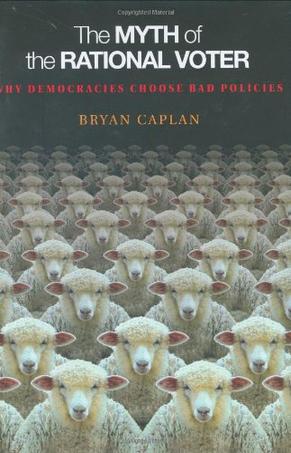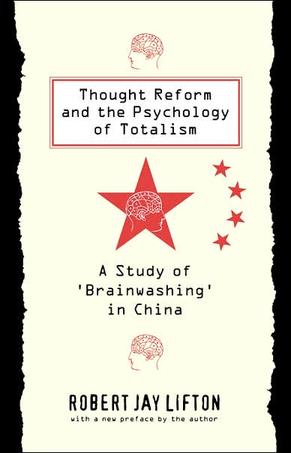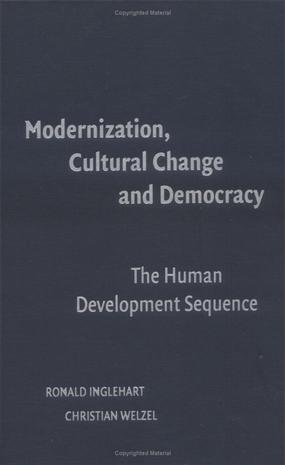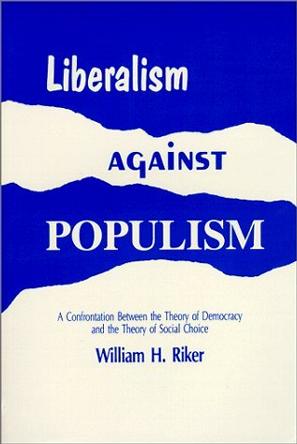欢迎来到相识电子书!
标签:刘瑜推荐
-
Thought Reform and the Psychology of Totalism
Informed by Erik Erikson's concept of the formation of ego identity, this book, which first appreared in 1961, is an analysis of the experiences of fifteen Chinese citizens and twenty-five Westerners who underwent "brainwashing" by the Communist Chinese government. Robert Lifton constructs these case histories through personal interviews and outlines a thematic pattern of death and rebirth, accompanied by feelings of guilt, that characterizes the process of "thought reform." In a new preface, Lifton addresses the implications of his model for the study of American religious cults. -
Modernization, Cultural Change, and Democracy
Review "Modernization, Cultural Change, and Democracy is the crowning achievement of three decades of research on the origins, evolution, and consequences of human values. Bold in its theorizing, pathbreaking in its methods, breathtaking in its empirical scope, and stunning in its findings, this book is one of the most important social science works ever produced on the relationship between values, development, and political regimes. Inglehart and Welzel make a compelling case for viewing development as the expansion of human autonomy and choice, and for political freedom and democracy as the consequence of economic development and cultural change. Anyone who thinks modernization theory is dead will have to grapple with the powerful logic of their evidence and argument." -Larry Diamond, Stanford University "This book is a landmark in the study of political culture and democratization. It will polarize opinion, provoking both strong acclaim and fierce critique. For this work presents powerful evidence contradicting several major schools of thought in the social sciences. It will be debated and cited now, and in years to come." -Hans-Dieter Klingemann, Fondation Nationale des Sciences Politiques, Paris "Inglehart and Welzel's book is a tour de force. Its comprehensive theory of how social modernization shapes human development makes a major contribution to our understanding of political development. This theory is tested by a rich analysis of peopleas opinions and values from all four waves of the World Values Survey--an unprecedented social science resource that covers 85 percent of the world's population. They conclude that social modernization shapes the human condition in predictable ways, and that the cultural consequences of modernization are a major force driving democratization. Culture matters--in nurturing the conditions for democracy to develop and in shaping the workings of the democratic process." -Russell J. Dalton, University of California, Irvine "Good books raise important questions after they have answered other important ones. Readers interested in political culture research and its contribution to understanding democratization processes will profit greatly from this book and, in addition, they will become acquainted with a professionally managed large-scale survey research project that offers many opportunities for further research." -Franz Urban Pappi, Universitat Mannheim, American Journal of Sociology Product Description This book demonstrates that people's basic values and beliefs are changing, in ways that affect their political, sexual, economic, and religious behavior. These changes are roughly predictable because they can be interpreted on the basis of a revised version of modernization theory presented here. Drawing on a massive body of evidence from societies containing 85% of the world's population, the authors demonstrate that modernization is a process of human development, in which economic development triggers cultural changes that make individual autonomy, gender equality, and democracy increasingly likely. -
Liberalism Against Populism
The discoveries of social choice theory have undermined the simple and unrealistic 19th century notions of democracy, especially the expectation that electoral institutions smoothly translate popular will directly into public policy. One response to these discoveries is to reject democracy out of hand. Another, which is the program of this book, is to save democracy by formulating more realistic expectations. Hence, this book first summarizes social choice theory in order to explain the full force of its critique. Then it explains, in terms of social choice theory, how politics and public issues change and develop. Finally, it reconciles democratic ideals with this new understanding of politics.
热门标签
下载排行榜
- 1 梦的解析:最佳译本
- 2 李鸿章全传
- 3 淡定的智慧
- 4 心理操控术
- 5 哈佛口才课
- 6 俗世奇人
- 7 日瓦戈医生
- 8 笑死你的逻辑学
- 9 历史老师没教过的历史
- 10 1分钟和陌生人成为朋友





